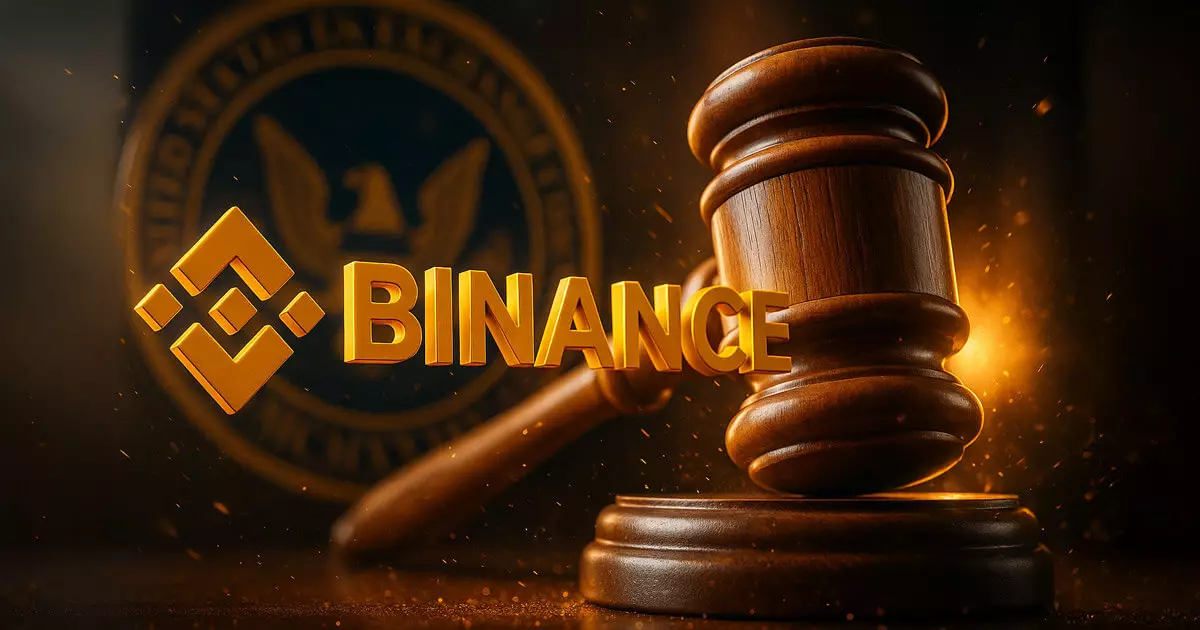The ongoing saga of Binance’s regulatory encounter reveals a landscape in flux, highlighting the precarious position of major crypto players in America. The potential removal of an external compliance monitor, sought by Binance as part of its recent settlement, signals more than just a corporate curiosity — it underscores broader ideological shifts within the federal government. Under previous administrations, strict oversight was seen as essential to curb the industry’s excesses, especially concerning money laundering and illicit transactions. Yet, the current pivot implies a move towards substitution rather than suppression—favoring enhanced reporting and internal controls over costly external monitors. This evolution reflects not just operational pragmatism but also a political statement: the government seems increasingly inclined to favor market-friendly reforms, possibly at the expense of rigorous enforcement that might hinder innovative growth.
From Enforcement to Pragmatism: The Realpolitik of Crypto Regulation
For the crypto industry, this move could be a double-edged sword. On the one hand, loosening hardline oversight potentially reduces operational costs and allows platforms like Binance to flourish with fewer bureaucratic hurdles. On the other, it raises serious questions about efficacy. Historically, external monitors emerged precisely because internal compliance proved insufficient to control the inherently opaque nature of such platforms. Merely shifting to internal reporting, without the teeth of outside oversight, risks enabling corrupt practices to fester beneath the surface. Moreover, this suggests an underlying political calculus: the Biden administration’s crackdown was often characterized as a means to regulate a disruptive industry, but the current softening hints at a strategic alignment with pro-business factions, including those with ties to financial elites and political interests.
The Political and Economic Implications for Global Crypto Markets
Binance’s deepening connections to influential political figures and prominent business ventures amplify concerns about the industry’s future under shifting policies. Allegations of Binance’s involvement with politically sensitive entities, such as the Trump family’s business pursuits, cast a shadow over its regulatory treatment. While the company has consistently denied these links, the political undertones cannot be dismissed. The possible easing of enforcement under the current administration also signals a broader tolerance for crypto’s growth—an implicit acknowledgment that the industry has become too large and significant to contain purely through punitive measures. However, this leniency might come with a warning: a regulatory framework based on internal self-policing and enhanced reporting could ultimately undermine consumer protections and facilitate a regulatory “race to the bottom.”
A Fragile Balance Between Control and Liberty
What emerges from this entire debate is a clear ideological tension. On one side, the need for effective regulation to prevent systemic abuse, especially money laundering and fraudulent schemes. On the other, the recognition that excessive oversight stifles innovation, economic dynamism, and the potential for crypto to empower individual financial sovereignty. The Biden administration’s apparent shift away from external monitors suggests a desire to strike a delicate balance—favoring a measured approach that grants room for growth but risks sacrificing the robustness needed to uphold integrity. This delicate dance of regulation reinforces the central question: will crypto be allowed to mature responsibly within a framework of accountable oversight, or will political expediency carve out loopholes that threaten its foundational principles? Only time will tell, but the trajectory now hints at a future where the industry’s survival depends on adapting to a constantly shifting regulatory environment that is increasingly shaped by political convenience rather than principled enforcement.

